How Three Austin Nurses Stayed Healthy During the Pandemic
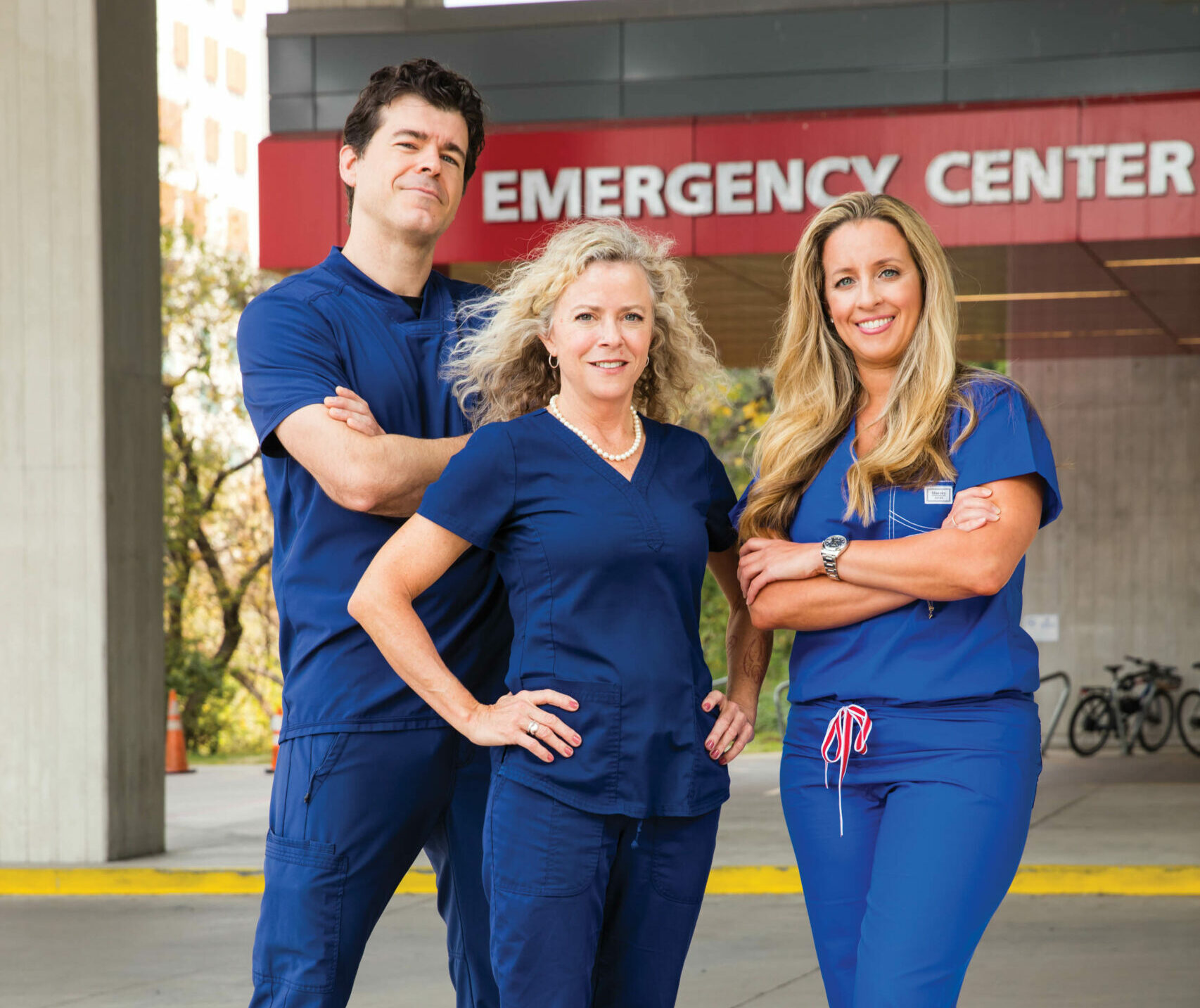
The first year of the pandemic brought a lot of new, scary experiences. For many, it was just a matter of adapting to social distancing and wearing masks. For others, it was the loss of things we were looking forward to — places we wanted to go and people we wanted to see. For some, it was a primary source of hurt, pain and stress as we were forced to say goodbye to many loved ones and suffer through the mental health issues the pandemic inflicted.
In the first year of the pandemic, the community stepped up, especially in appreciating their essential workers — like folks in the medical field such as nurses and doctors. However, as we entered into 2021, the rawness of the pandemic’s wounds wore off, and people became numb to the grip that COVID-19 still had on our lives.
We forgot how much adversity the people in these essential roles still experience on a day-to-day basis. Nursing is widely considered a significantly more stressful profession than others and often has reportedly high levels of stress associated with it. This is due to the on-the-job physical and emotional demands, long hours and low social support.
If this is the typical experience for nurses, then the pandemic only escalated burnout. According to a study on front-line nurses, about half of the surveyed nurses reported they experienced a moderate to high level of burnout at work. These wounds from the pandemic may not be fresh, but they definitely left scars.
Because of the wear and tear of the job and emotional toll it has on the workers, it’s dire for nurses to maintain their physical and mental health. One way to maintain both aspects of health is by participating in health-promoting behaviors such as exercise, as it not only improves your mental health but also positively impacts job stress.
I got to talk to three Austin nurses about ways they stay fit while fighting a global pandemic.
Turn Off Your Brain // Tracie Roseberry
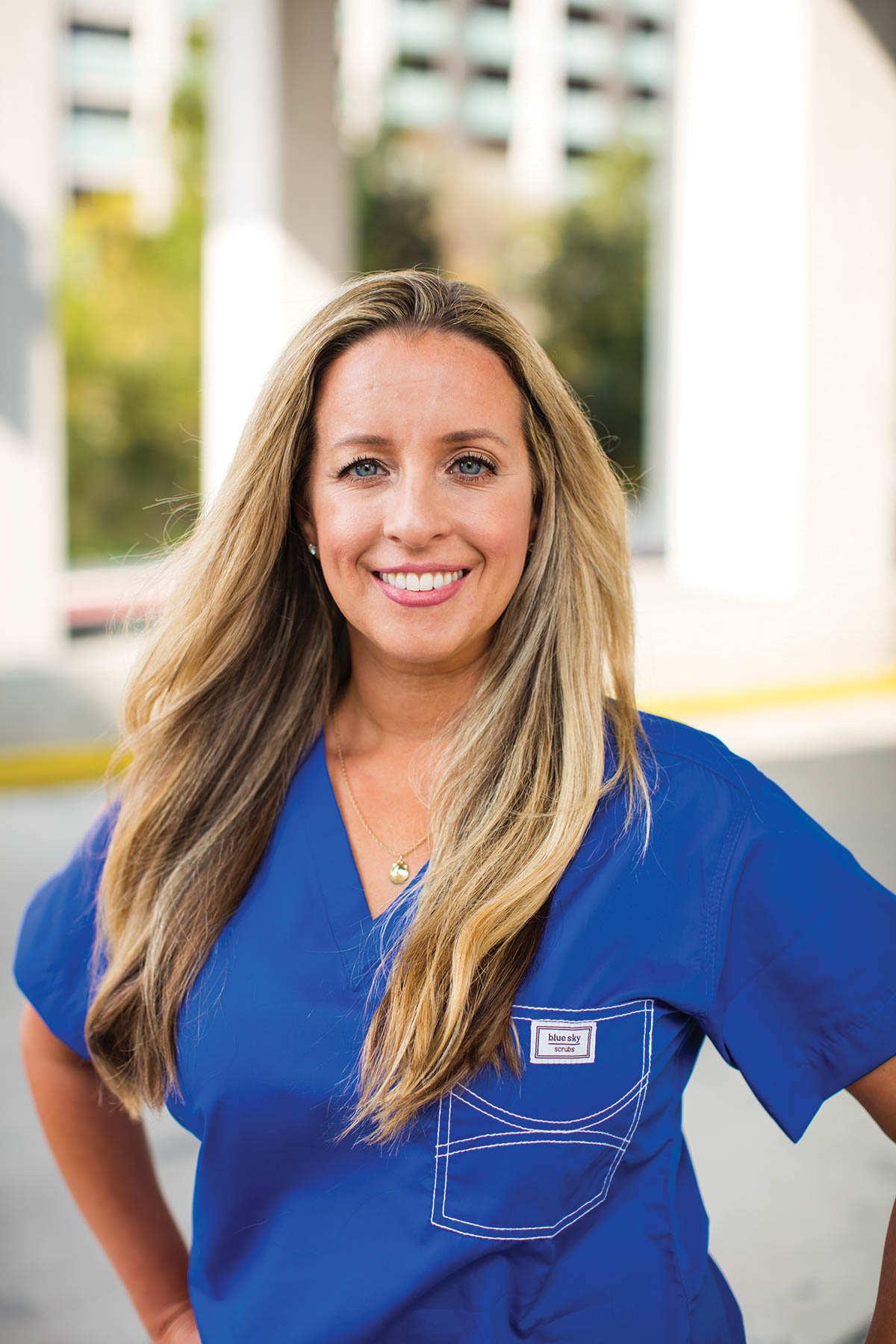
As an advanced practice registered nurse, Tracie Roseberry has a lot on her plate. She works closely with the ICU nurses and physicians, aiding in the assessment of patients all the way through their postoperative journey.
“We’re basically the eyes and ears of the surgeons when they’re in the operating room,” Roseberry says. “We spend a lot of time in the ICU making sure the patients and nurses have what they need and identify problems before they become big problems.”
Over the years, especially in the age of COVID-19, she felt the weight of the workload and exhaustion at the end of each day. Looking back on her experience, she described it as a battlefield.
“I never served in the military, but it felt like what I would imagine wartime medicine to be — figuring out how to allocate and maximize resources appropriately and take care of the most people you can with the constraints you have,” Roseberry says.
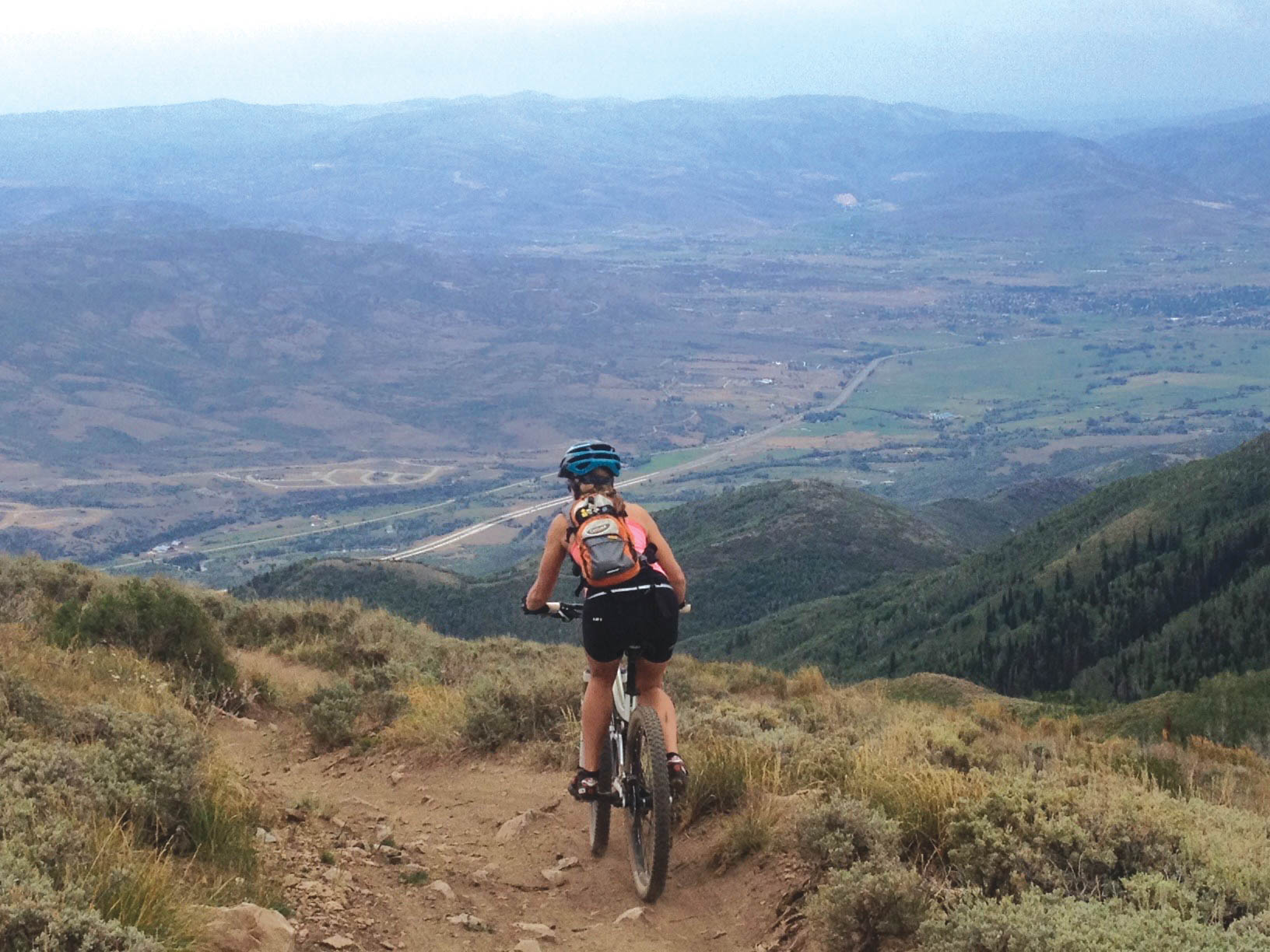
With this new exertion, she recognized the amount of effort it takes to acknowledge her own need for self-care and getting outside, no matter how long her shift was. Working on your feet for 10 to 12 hours a day under fluorescent lighting will slowly take a toll on you, especially considering how much your body needs quality care and vitamin D.
“It’s amazing how much energy you get from being active,” Roseberry says. “Once you get that ball rolling, it’s a lot easier to stick with, but it’s hard to get over that hump and have that conversation with yourself.”
To refresh her mind, she tries to go mountain biking at least every Sunday for a couple of hours. She calls it “dirt church,” as it’s time to be one with nature and detach from the usual day-to-day stressors.

“When you’re on a trail, you can’t be thinking about other things,” Roseberry says. “You have to think about the tree you’re about to hit or the ledge to your left. You have to turn off your brain, which is a nice reprieve.”
Roseberry says staying active not only serves her in being an example to her patients but also reminds her of how fortunate she is to be able to do these things.
“It’s nice looking at it from the perspective of: What are health care providers doing to care for themselves?” Roseberry says. “We tend to be the firstborns — the caretakers — and a lot of times, people don’t stop to think about how they can care for themselves. It’s a good reminder that we should be (caring) if not for ourselves but also to be an example.”
Cleanse Yourself for Others // Fernando Aldaz
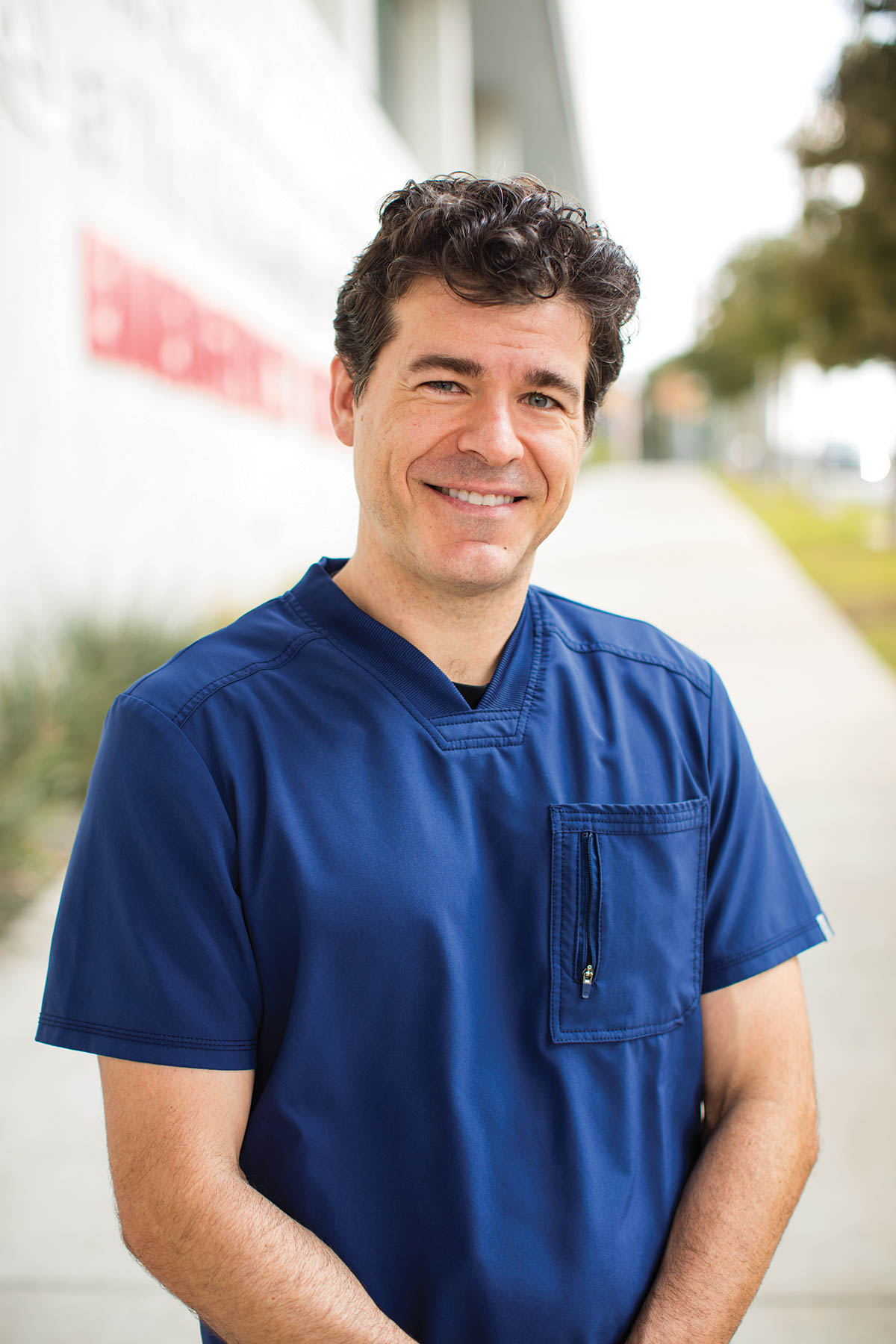
Actor-turned-nurse Fernando Aldaz currently works as a cardiovascular nurse in which he focuses primarily on assessing cardiovascular patients, where he is formulating a plan for them and consistently checking up on their progress.
From executing tangible tasks like blood transfusions to managing the emotional weight of patients who are frustrated and/or stressed, Aldaz recognizes how taxing the profession can be.
“You’re the ambassador. You’re the gatekeeper to the doctors and patients,” Aldaz says. “You have a lot of emotions, stress and energy that you’re absorbing from all angles, and if you make a mistake, that’s stressful for you.”
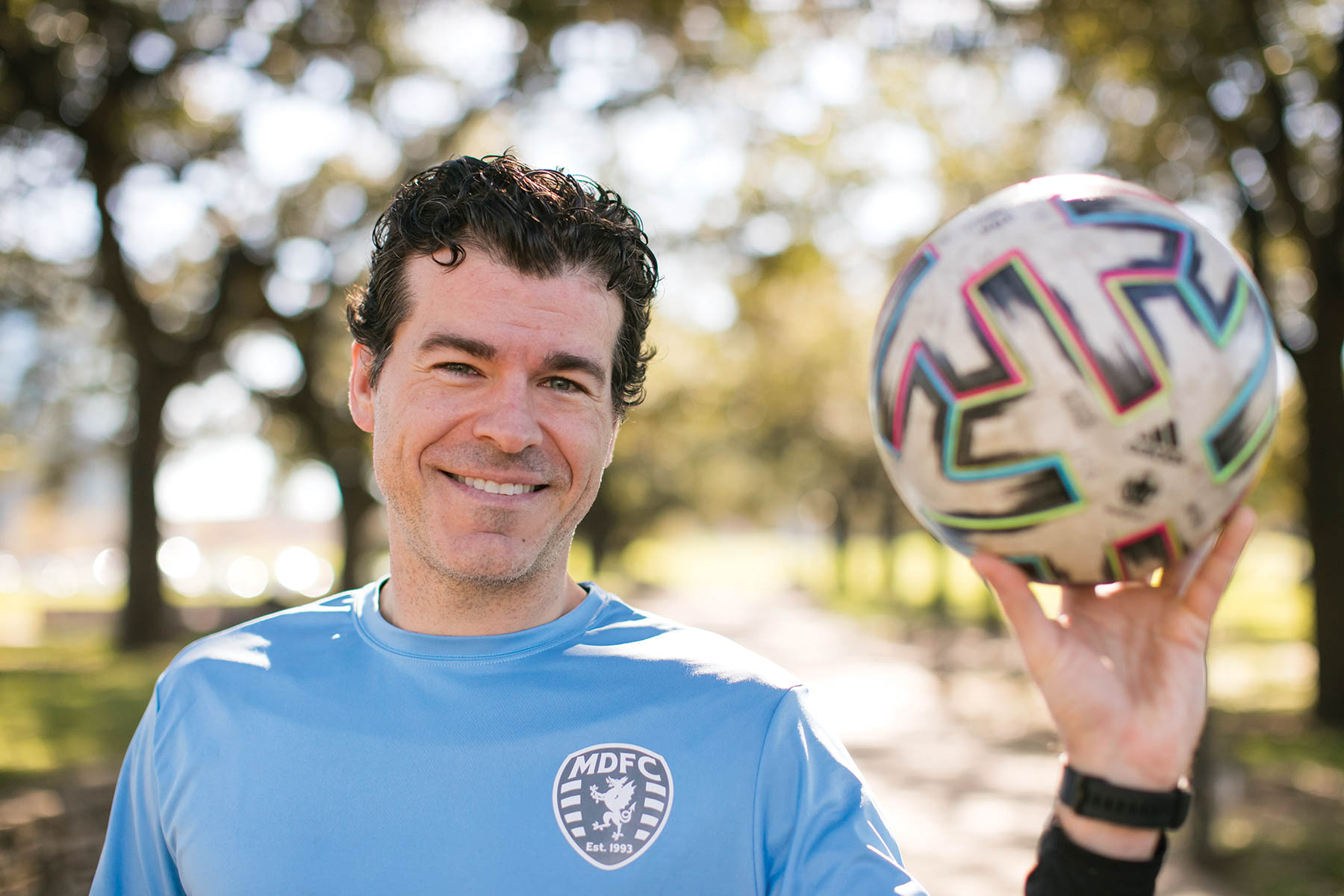
Aldaz says he tries to manage his mental health through daily meditations as well as rock climbing and working out. However, one of the main things he does to alleviate stress and rejuvenate his body is playing soccer.
Currently, Aldaz is in two men’s leagues as well as a co-ed one, and he tries to play at least twice a week. He says staying fit makes him a better nurse every day for his patients.
“I wake up on my days off and have energy. I’m not depressed, and I feel strong and like I’m doing something healthy for myself. It’s like a ‘health high,’” Aldaz says. “It just fuels my morality and makes me feel better overall.”
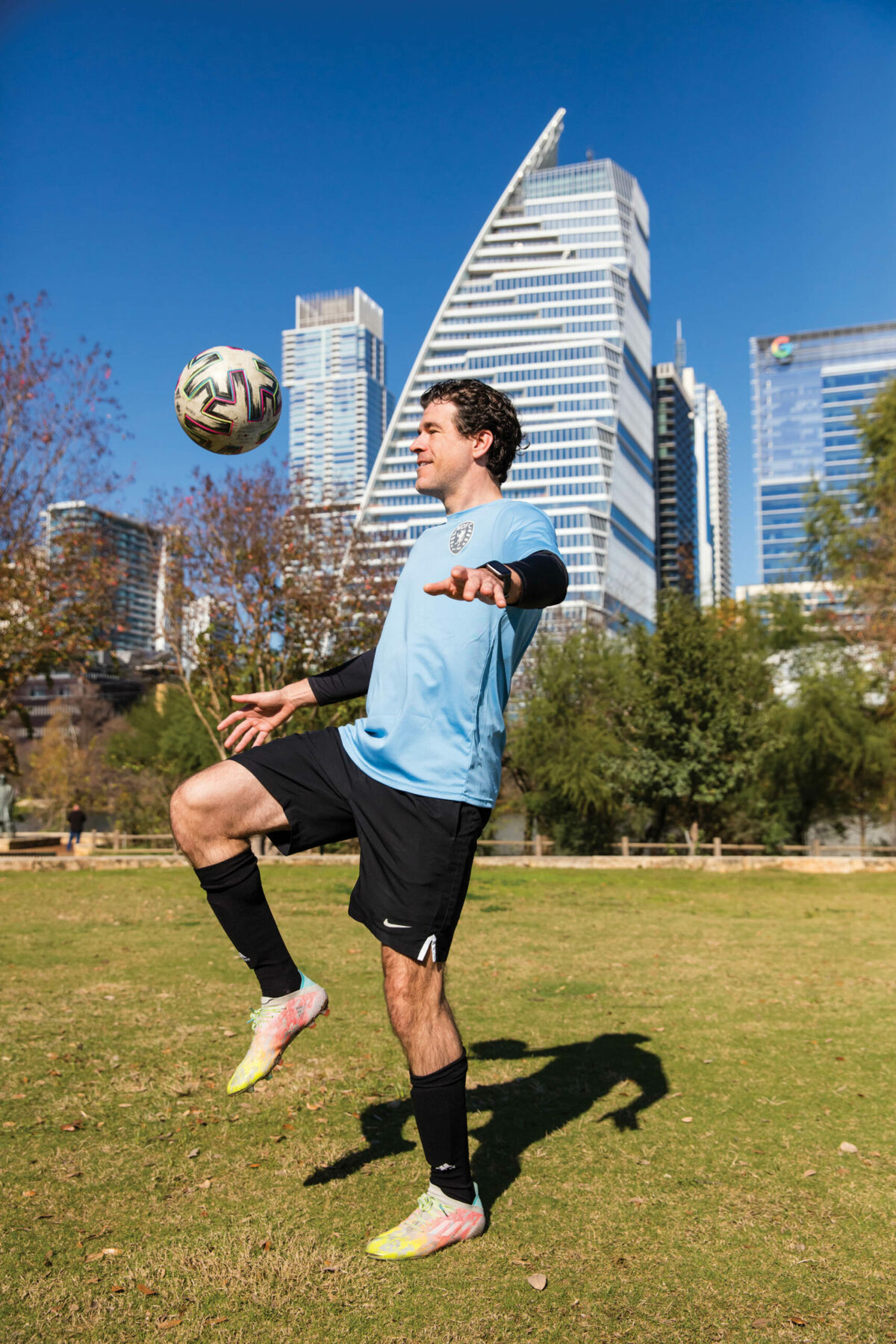
Though Aldaz has only been a nurse since February 2021, he’s learned how important it is to get exercise instead of falling into the hands of mindlessly watching TV or browsing the Internet. This is especially true when you’re in the business of caring for others.
“You want to be the purest vessel possible for the people you care for,” Aldaz says. “Self-care, whether it’s being in a running group or seeing a therapist, is vital. Otherwise, it’s like walking with a bad gait — it’s going to catch up to you over time. Your inability to be balanced will show up in your morale, your work and the way you approach it.”
Renew Your Soul // Nancy Sisk
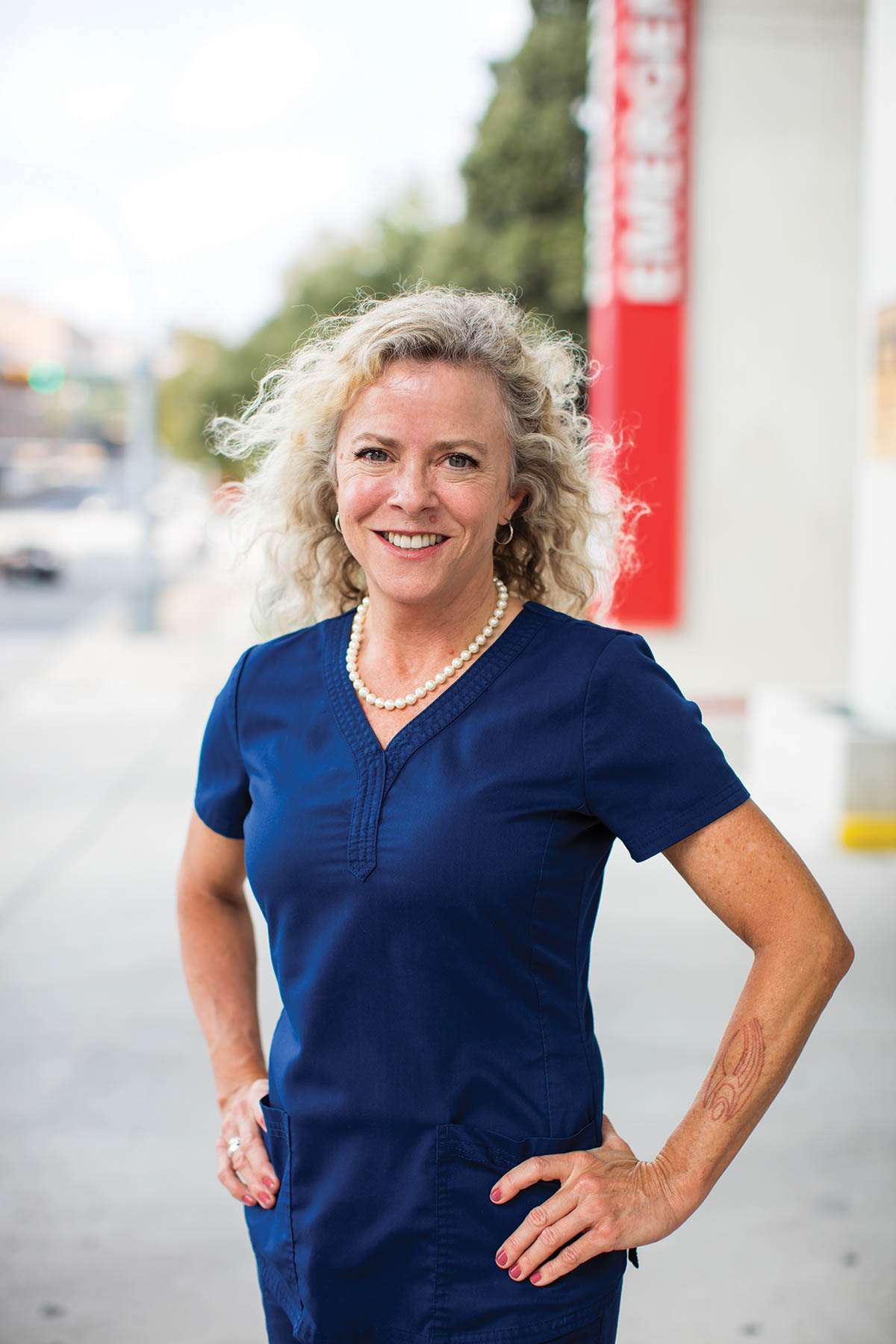
Though Nancy Sisk spends more time now as a nurse educator, building physician orders and documentation, she still helps out as a VAD coordinator and in the ICU when she can. When she started out as a nurse, she worked with people experiencing homelessness and mental illnesses and later transitioned to working in 900-bed hospitals.
“When I first started (as a nurse), I wasn’t sure I was going to be able to do it,” Sisk says. “As soon as I started clinicals, (during) my whole first year of nursing, all I did was cry. I wanted to take everyone home and have them in my house. It just killed me.”
The emotional toll nursing had on Sisk was nothing short of a challenge. Death is something many nurses have to face in their workplace, and for Sisk, this happened to people she was close to. Sisk remembers times she’s had to remove life support from some of her patients she knew well — people she considers family. The only way she was able to truly cope was by staying active.
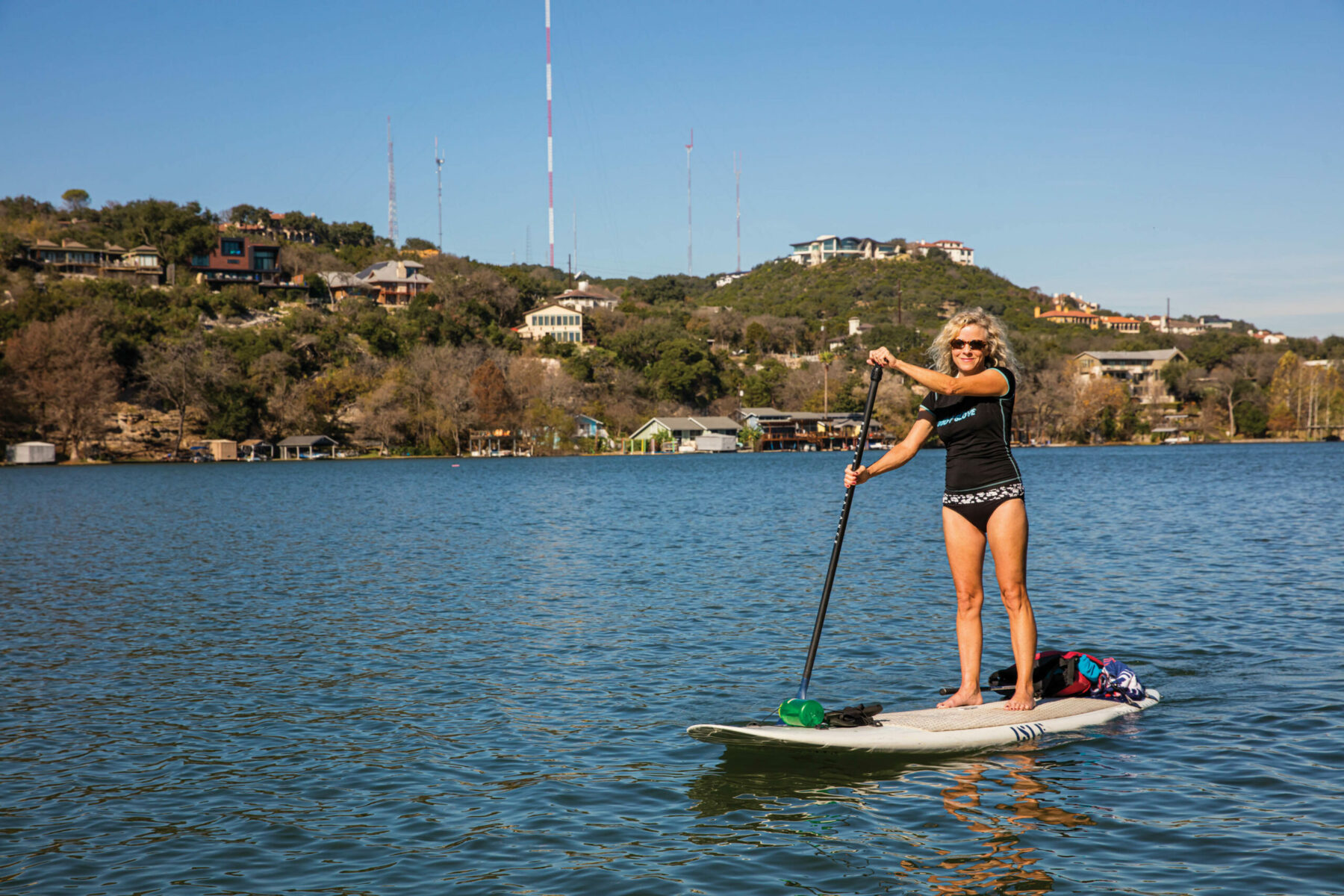
“Losing those patients last year — being on my bike or just doing something different is the only way to cope at times,” Sisk says. “It’s better than medication, for sure. It’s a good time to sit and process what’s going on.”
Sisk will try to go paddleboarding at least once a week, sometimes putting her paddleboard on top of her car and driving to the water straight from work. Sometimes, she even does an early morning swim in Barton Springs when it’s freezing outside to refresh her brain. Sisk values these spaces where you can sit alone, process and cry when the job becomes too much.
“(It’s important to stay active) so you can continue to do the job and can come to work fresh every day and take care of these people,” Sisk says. “Because they’re not easy; it’s not an easy job.”
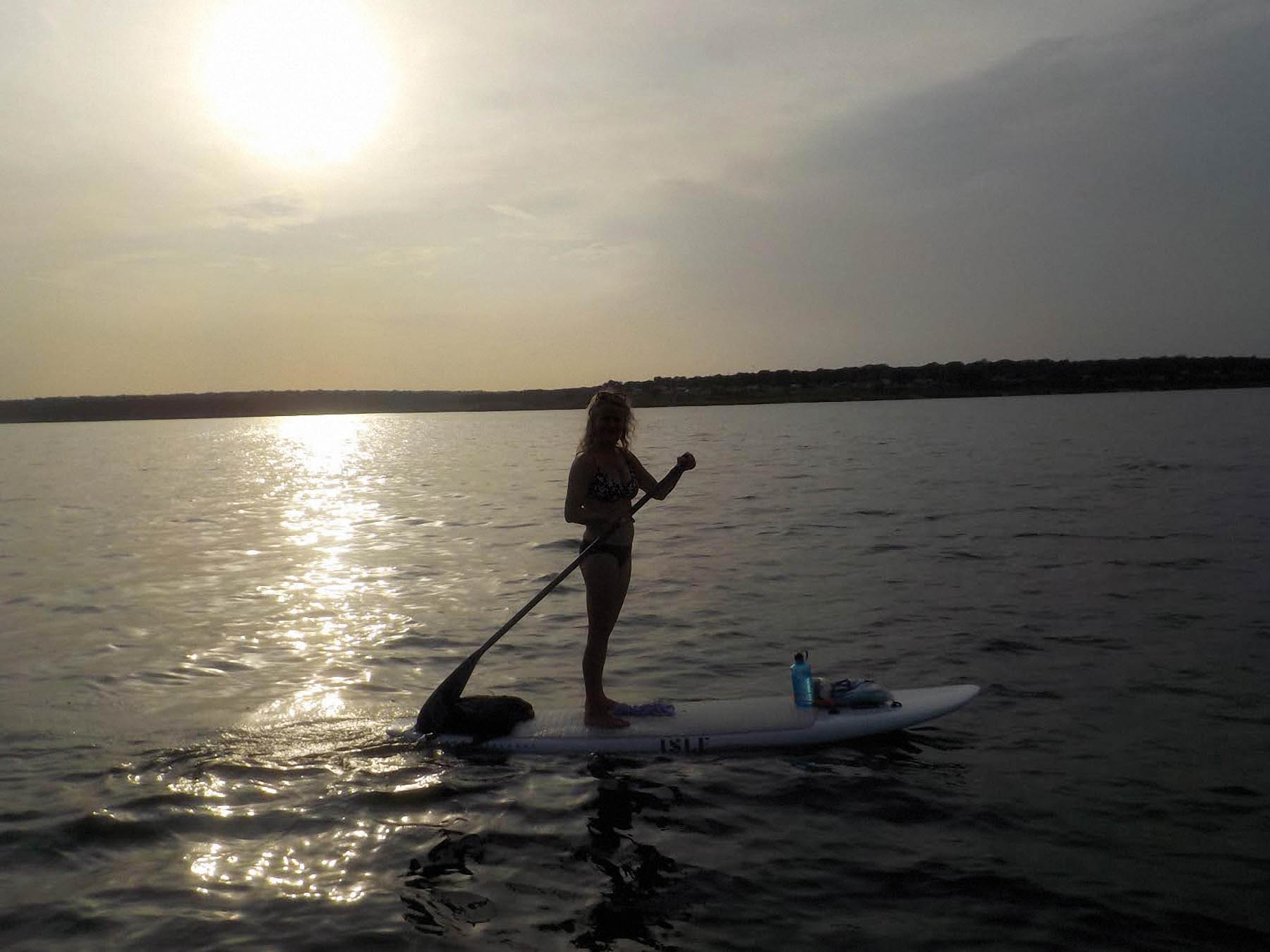
Sisk also uses her pain as a motivator to push herself more in pursuing fitness. She remembers her patients who often have it much worse, as they don’t have the privilege to leave the hospital every day like she can and go outside for physical exercise.
“When you feel like you’ve got pain, you don’t have the pain they had,” Sisk says. “People (say), ‘This is a long day’ or ’I don’t get to do this.’ Well, you get to go home; they don’t. You get to go out of the hospital, go outside and be on your board or bike. It’s a gift.”






